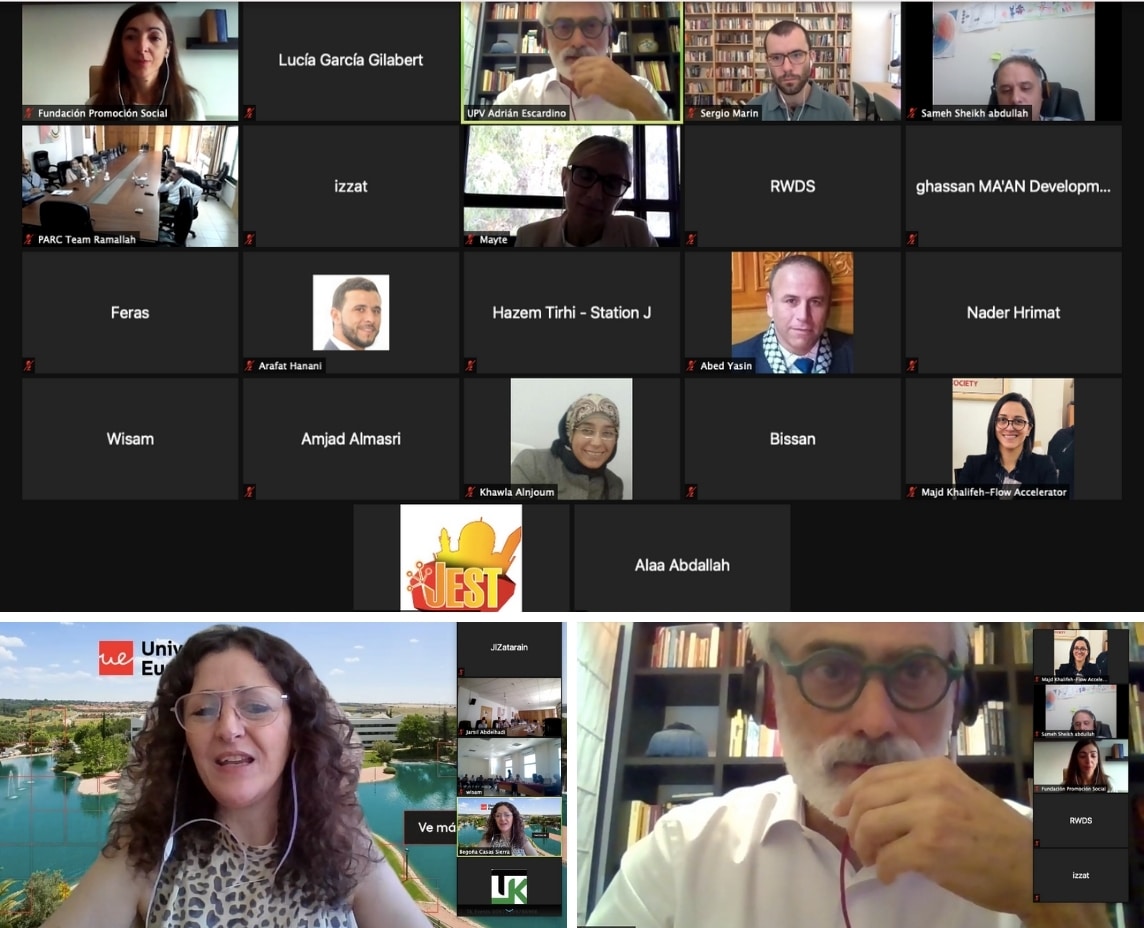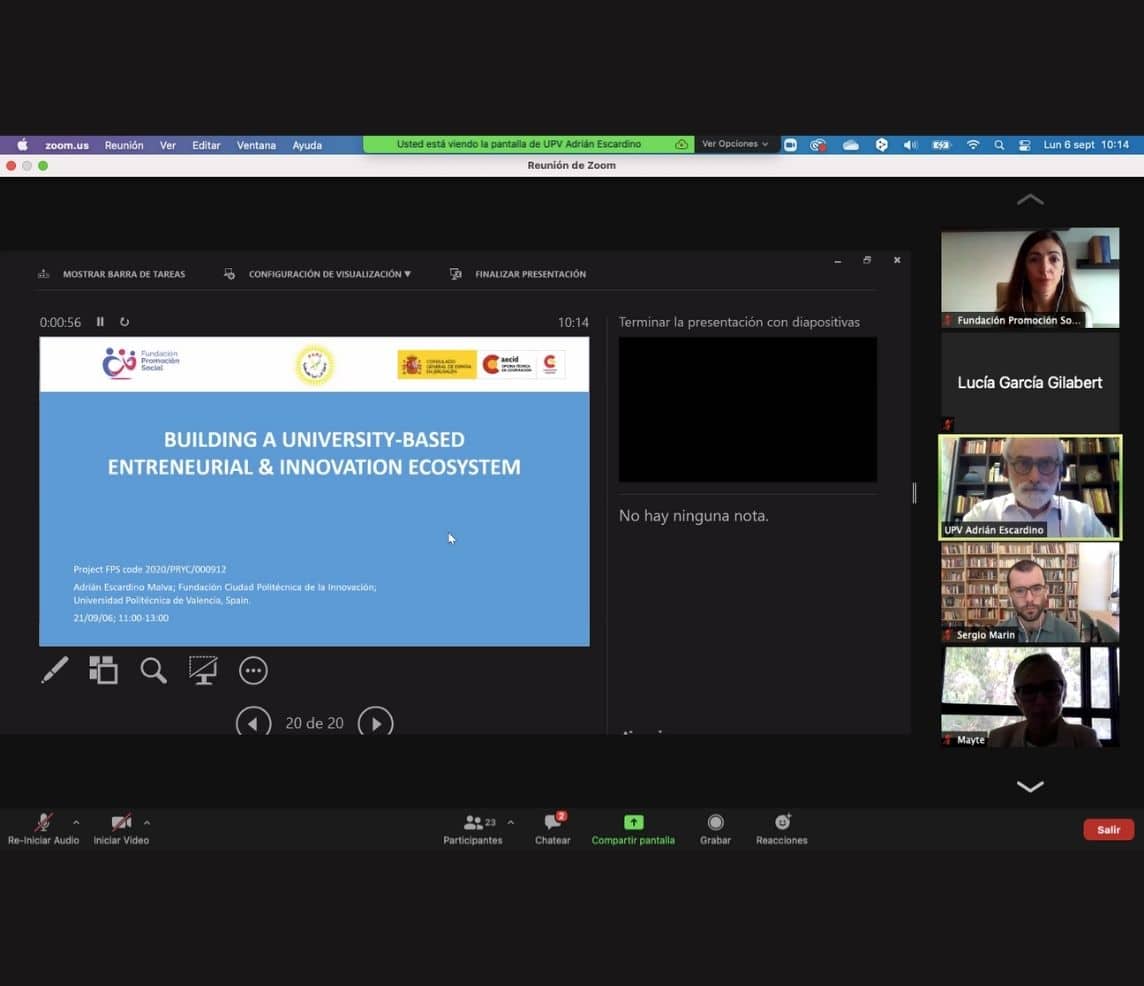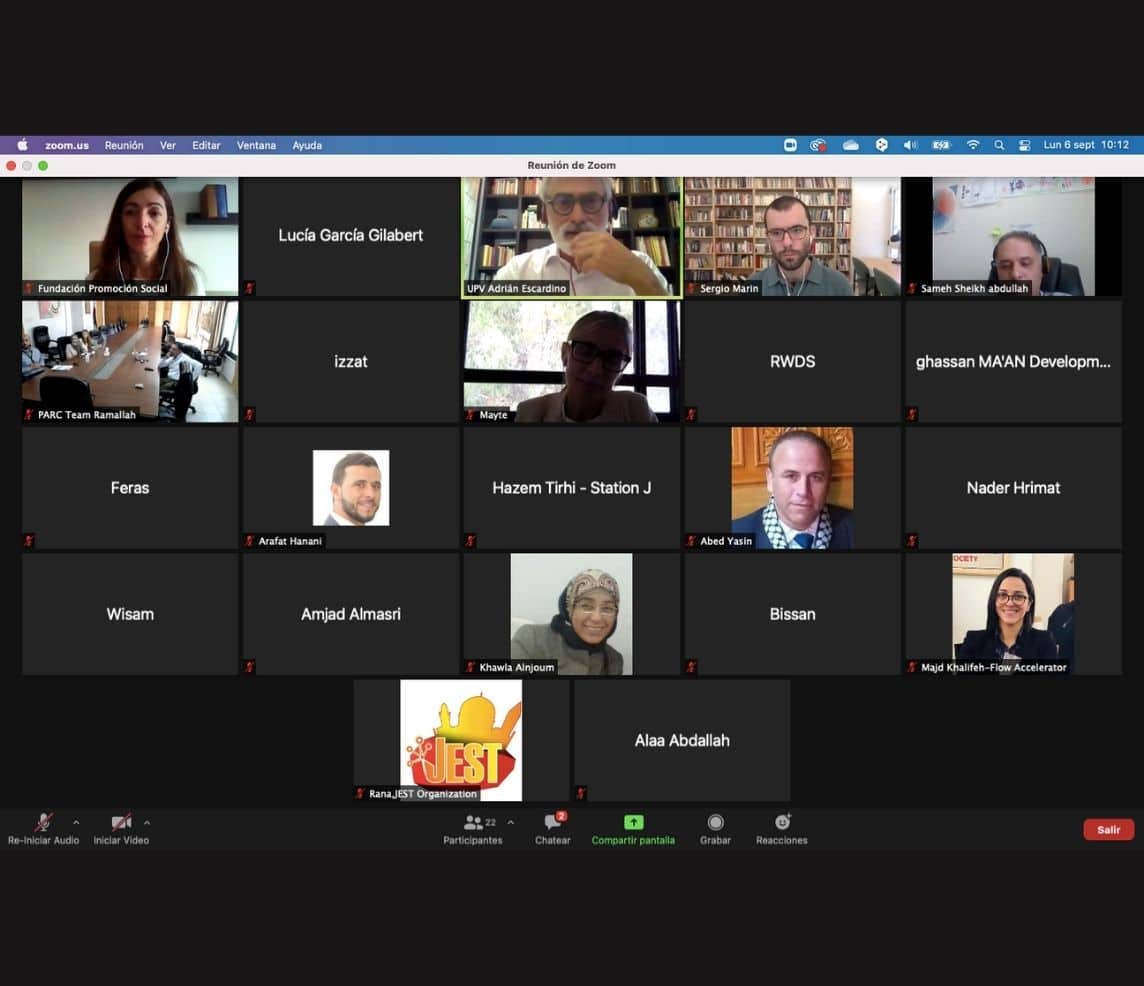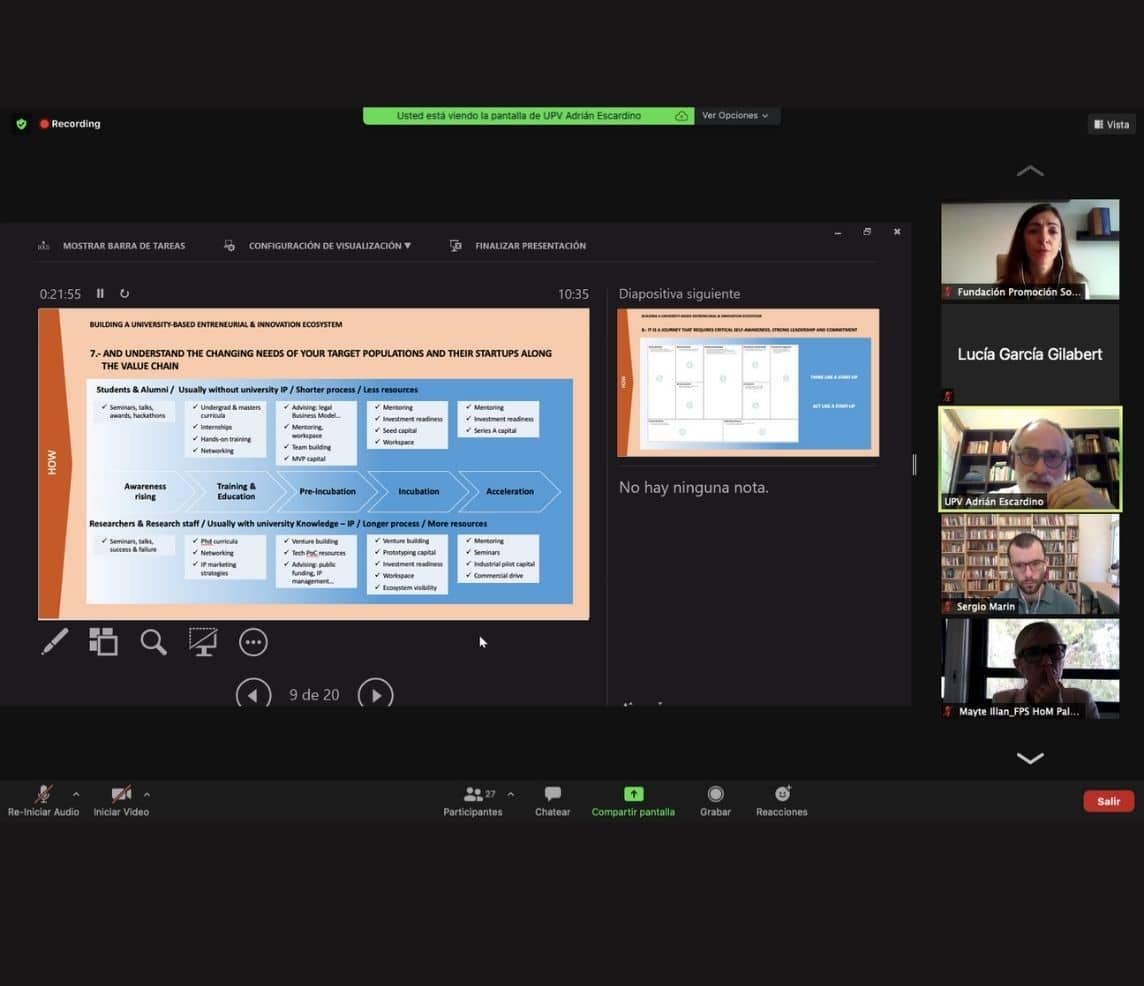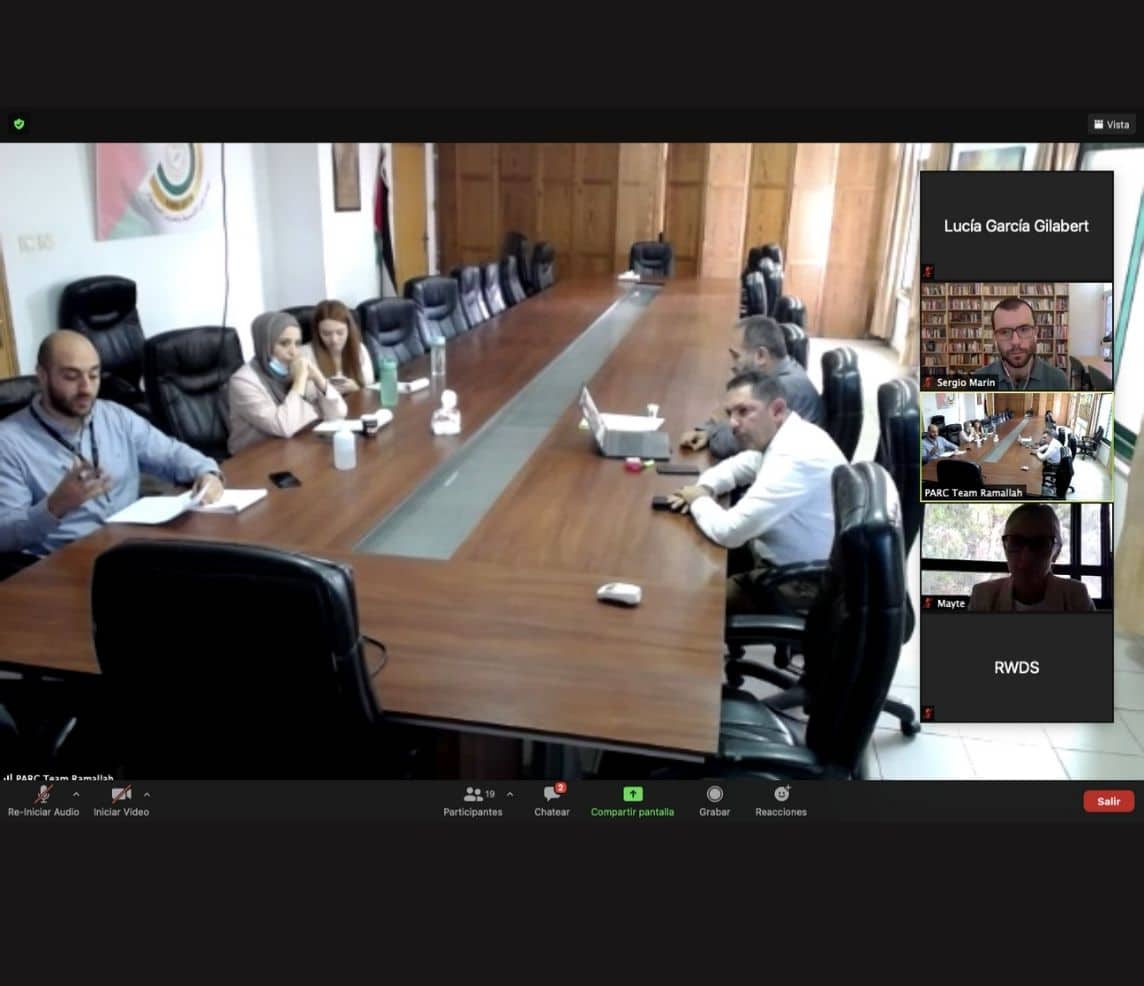The Social Promotion Foundation, together with its local partner Palestinian Agricultural Relief Committees (PARC), has organized two Webinars on entrepreneurship within the framework of the project funded by AECID, which seeks to recover sustainable livelihoods that improve the resilience of the most vulnerable population of the Area C in Palestine.
The first of them, held on August 30, under the title “Main entrepreneurship hubs worldwide”, was aimed at 50 entrepreneurs participating in the project and young students from the Khadouri, Open Quds and Polytechnic universities.
The participation of Begoña Casas Sierra, Professor of Economics and Business at the European University of Madrid, who for years worked in the Projects Department of the Social Promotion Foundation.
During her speech, she addressed issues such as the emerging ecosystem of Start-ups companies, analysing this sector worldwide, but also in the Middle East and in developing countries.
By addressing the reality of these international centres that are developing entrepreneurship, the possibility is opened of mapping the reality of entrepreneurship and encouraging young university students, potential entrepreneurs, to approach them, identifying potential markets, financiers and international investors and gathering ideas from success applicable to the Palestinian reality.
Begoña Casas commented that Tel Aviv-Jerusalem is among the top 6 positions in the Global Ranking of Start-ups Ecosystems, including the following main sectors of entrepreneurship: Artificial Intelligence, Cybersecurity, Big Data and analytics.
The speaker, aware of the situation of extreme difficulty for the development of agribusiness in this area, offered practical information to undertake new businesses, seeking differentiation and innovation, and encouraged the young participants to undertake their ventures diversifying risks and seeking strategies of business focused on growth based on efficient management of products and customers.
Subsequently, on September 6, Adrián Escardino, member of the spin-off team of the Polytechnic University of Valencia, directed a second webinar for decision-makers from the university field, under the theme “Building entrepreneurship and innovation ecosystems based on the universities”.
Through the analysis of internal and external factors of success, the objective was to establish a framework for reflection and work to favour the support of innovative entrepreneurship in Universities for its graduates, contributing to their potential and their transformation.
During his speech, the speaker stated that leading universities in entrepreneurship share an emphasis on innovation and application of scientific knowledge, a committed management at all levels and support for student initiatives. He also stressed that it is essential for the university institution to gain awareness of its own and of the context that surrounds it: who it is, where it is and what assets it manages, and to have investors and good relations with the industry from the beginning.
In relation to the strategy, in order to be effective, it must take into account both students and alumni as well as researchers and employees, it must adapt correctly to the available ecosystem and know how to use the resources it offers. In addition, it is a lifelong challenge, which requires changing the processes and mind-sets of managers, employees and students.
To end his speech, Escardino presented as a case study and success the ecosystem for promoting innovative entrepreneurship typical of the Polytechnic University of Valencia.
These trainings are part of the activities planned to empower Palestinian youth from Area C in a sustainable and equitable way against COVID-19 through the agribusiness sector.
The ultimate goal of the project is to combat chronic poverty and lack of employment opportunities in Area C of Palestine, aggravated by the impact of COVID-19, which weaken its precarious economy with the loss of employment of workers in Israeli companies and further isolation from the rest of the country, seriously affecting local agricultural markets.





